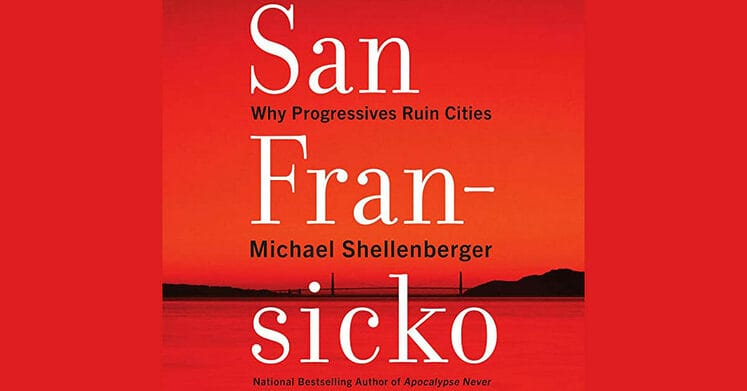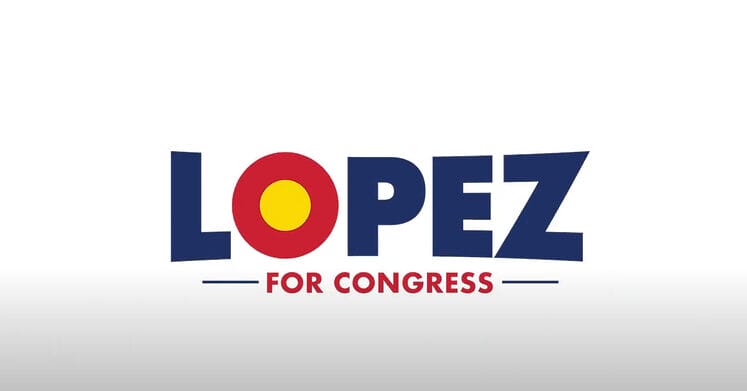One of the dominant themes of my writing over the past couple of years has been how Democrats – whose party has been completely taken over by the so-called “progressives” – are objectively, clearly, and completely unfit to govern in 21st century America.
If you hold human flourishing as your goal and standard of moral value, it is clear that Democratic policies stemming from the progressive ideology are failures. By “failure”, I mean that their government programs cost more than they were projected to and not only fail to help those they intended to help, but often actually cause demonstrable harm to their intended beneficiaries as well as the rest of society.
As I talked about in You Don’t Know What You Got ‘Til It’s Gone, America is in crisis, and virtually all the problems we are experiencing today as a nation were engineered by elected Democrats. Nowhere is this more evident than in the epidemic of homelessness, drug abuse and rising crime that is now reaching epic proportions in Democratic-run cities and states.
In San Fransicko: Why Progressives Ruin Cities, self-confessed progressive author Michael Shellenberger talks about the roots of the homelessness crisis in San Francisco and other progressive-run cities, how the policies intended to help the homeless actually hurt them and how despite ever increasing amounts of money (taken by force by governments) being thrown at the problem, it continues to get worse.
Before we begin, let me tell you that if I had read the author’s bio before I bought the book, I would never have bought it.
While Mr. Shellenberger wrote the book with the best of intentions – as a “…positive proposal for how to restore human dignity, not just law and order, to progressive West Coast cities,”1, I have written this review of his work to bolster my case that electing Democrats to run our governments is the path to disaster at the local, state and national levels.
About the Author
In the Introduction, Shellenberger establishes the framework from which he approaches the writing of this book: “I am not unfamiliar with radical politics. As a socialist youth in the late 1980s I had read books by America’s most famous anarchist, Noam Chomsky, excoriating US imperialism in Latin America. From 1996 to 1999, I worked with eco-anarchists seeking to save old-growth forests in California and the Pacific Northwest. And in 1999, I protested along-side so-called black bloc anarchists against economic globalization in the streets of Seattle.”2
According to the book jacket, Shellenberger is “…a Time magazine “Hero of the Environment”, the winner of the 2008 Green Book Award…an invited expert reviewer of the Assessment Report for the Intergovernmental Panel on Climate Change (IPCC)…He is the founder and president of Environmental Progress, an independent, nonpartisan research organization based in Berkeley, California.”
In other words: a complete lefty. This is why I found this book so surprising, and I have to give the man credit for writing honestly about how people on his side of the ideological divide are not achieving their desired results with their policies and agenda.
Overview
San Fransicko consists of nineteen short chapters and an Epilogue. The book starts with a look at how the problem of dog feces on the sidewalks of San Francisco was solved by passing a “Scoop the Poop” act, only to be replaced years later by the much worse problem of human feces on the streets. The reason for this, of course, is a massive increase in homelessness in the city of San Francisco. And while Shellenberger focuses most of his discussion on the city of San Francisco, the points he makes can be applied equally to Seattle, Portland, Chicago, Austin, Denver, and other cities run by progressive Democrats.
Causes of Homelessness
The first six chapters focus on the causes of homelessness, which can be reduced simply to five broad areas: drug and alcohol addiction, mental illness, life choices, government incentives and lack of affordable housing.
In Chapter One, Shellenberger introduces the problem and reviews how a coalition of San Francisco’s business, philanthropic and media communities formed with a goal of halving the homelessness problem in 5 years. The San Francisco Coalition on Homelessness “…led a campaign to fund housing and services with a special tax on San Francisco businesses that gross more than $50 million annually.”3 (Of course, a tax on successful businesses!)
Chapters Two reviews the problems of drug and alcohol. In the beginning of Chapter Two, the author notes that “Progressives have long defended the right of the homeless to camp in public places.”4
This is another reason why homelessness is such a problem in Democrat-run cities: because the people in charge believe that people have a “right” to camp in public places. Sometimes they even give the homeless the equipment they need (like tents) to live on sidewalks. One San Francisco business purchased and gave away $15,000 worth of camping tents.5
There is a significant disagreement among homelessness advocates as to whether a better solution to the problem is more shelters vs. more permanent housing. While many homeless people refuse to stay in shelters for various reasons, among them fear of violence and sexual battery, the level of homelessness doesn’t seem to be affected by how many shelter beds are available. In addition, many shelters require sobriety and have limits to how long a person can stay.
A significant factor of the homeless problem in Democrat-run cities is that they pay lots of money to people for being homeless. San Francisco, Shellenberger notes, “…remains significantly more generous in its cash payments to homeless, and other spending to serve them, than other cities. For example, San Francisco’s maximum General Assistance cash welfare monthly benefit for the poor is $588, as compared to $449, $221, and $183 for individuals in San Diego, Los Angeles, and New York City.”5 San Francisco spends 6% if its budget on the homeless, compared to New York City, Chicago, Phoenix and San Diego which spend 3.5%, 1.1%, 0.9% and 2.5% respectively.5
When you incentivize something, you get more of it. It’s that simple. Studies show that the majority of San Francisco’s homeless came from somewhere else.
Starting with Chapter Four, Shellenberger dives into criminal justice issues and debunks the myth of how the “war on drugs” has resulted in the United States having such a high prison population, noting that “…over half of all prisoners in state prisons are there for violent offenses like murder, rape and robbery.” 6
Drug addiction and the resulting drug overdoses are the number one cause of accidental death in the United States.7 A large cause of the problem, in my opinion, is that progressive-run cities and states (like Colorado) have decriminalized many drug offenses, including possession of fentanyl, the highly toxic synthetic opioid that is the cause of so many drug overdoses today. This “soft on crime” approach is a result of their “victimization” ideology as opposed to the personal responsibility views that many conservatives hold.
After reviewing the results of how cities in Europe, notably Amsterdam, dealt with the problem of drug addiction, the author discusses how an approach that combines law enforcement and social services can reduce the problem of drug addiction in American cities.
Chapters Six through Nine go over one of the other significant problems that causes homelessness: mental illness. In Chapter Six, Shellenberger debunks another myth so beloved of the Left: the one where Governor Ronald Reagan (later President Reagan) was responsible for shutting down the state’s mental institutions.
Not so, says Shellenberger: “While it is true that…Reagan oversaw the closure of mental hospitals, he didn’t start deinstitutionalization. It began nationally in the 1930s, mostly to save money. The closure of California’s mental hospitals began in earnest in the 1950s, more than a decade before Reagan became governor.”7 He discusses how the bill that aimed to reduce the involuntary hospitalization of the mentally ill was “…a creation of civil libertarians, mental health professionals, and anti-psychiatry activists, sponsored by two Democrats…[and] would have passed even had Reagan vetoed it.”7
Nationwide, it was another Democrat – John F. Kennedy – who “…got the deinstitutionalization of psychiatric hospitals rolling.”7
A large number of the homeless are mentally ill, and their homelessness is the result of their mental illness – they cannot hold steady jobs, they lack family and other social support, and they often have drug and alcohol addictions as well as adverse health issues.
Social Spending and Life Choices
In Chapter Ten, Shellenberger reviews the “successes” of social spending and income redistribution. A detailed analysis and discussion of his research, assertions and conclusions is beyond the scope of this book review. But he also points out that many people can become homeless as the result of poor life choices and tells the story of one African American youth who got caught in a cycle of homelessness and incarceration as the result of the choice he made to use alcohol and drugs.
In Chapter Eleven Shellenberger talks about the “Heroism of Recovery”. In this chapter he also takes a look at the,“long-standing philosophical debate over whether we have free will or are just the products of our environments…”8, an interesting discussion where he also introduces the writing of French philosopher Michael Foucault, who “…felt that individual responsibility was a myth used by powerful people to punish and discipline others for things they could not control.” 8
I found this relevant because it illuminates why progressives embrace the “victim” ideology – because we have no “free will” we are not responsible for our life choices. This means that the things that happen to us are due to factors and events beyond our control. I guess in their view the proper role of government in this context is to lift us up and take care of us, since we are incapable of caring for ourselves.
To open Chapter Fifteen, Shellenberger includes this highly revealing quote:
“In 2004, a man named Joel John Roberts published a plaintive book called How to Increase Homelessness. In it he pointed out that, for more than thirty years, a large and financially motivated lobby of homeless service providers, homeless housing developers, labor unions, for-profit consultants, and advocacy groups have lobbied at the federal, state, and local level to increase funding for themselves. During that time, homelessness only grew worse.
One might be tempted to dismiss Roberts’s book as yet another diatribe against the “homeless industrial complex” were it not for the fact that…he…is the CEO of PATH, an integrated housing and services homelessness agency in Los Angeles.”9
His discussion of how progressives fail to see that one cause of homelessness may be the amount of money governments are throwing at the problem is well worth reading. He concludes the chapter with this observation, which to my mind is the essence of the problem with the entire approach progressives take to governance:
“The problem is when compassion acts as cover for darker motivations. Throughout history people who appear to have the Dark Triad personality traits of psychopathy, Machiavellianism, and narcissism, most famously Stalin and Mao, have successfully manipulated compassionate, idealistic people to support them, even after evidence of their barbarism came to light. What is notable is that they have often done so not by pretending to be altruistic but by being genuinely altruistic. If we are to understand why progressives ruin cities, we need to understand how and why compassion, altruism, and love have created a blind spot, and not just in relationship to foreign despots but also to homegrown ones.”10 [Emphasis mine]
In the last four chapters, Shellenberger covers several areas that relate to the ideas of free will, compassion, leadership and responsibility. I found his tale of how the West Coast states of California and Washington went from Republican strongholds to the Democratic disasters they are today to be very interesting (and cautionary).
Conclusion
While Mr. Shellenberger may disagree with some of the conclusions I have drawn from his book and my recommendation below, I will state outright that it is a highly readable book and it should be read by anybody who might be thinking about how they want their major cities, states and country to be run.
Amply sourced and referenced, Shellenberger doesn’t shy away from stating the facts, even when they are at odds with the prevailing progressive ideology. For this, I commend him and thank him for his honesty.
I first read this book several months ago and I wanted to bring it to the attention of people who might be thinking about how they are going to vote in this coming election. I believe, and I hope you read the book to see if you agree, that voting for Democrats is not a wise choice if your goal is to increase human flourishing and our overall quality of life. Every pathology we see in Democrat-run Denver is exactly the same as what’s happening in San Francisco, and for the same reasons.
One last observation. I now live in Oklahoma City, which is run by Republicans in a Republican-governed state. And while there are homeless people here, there are not nearly as many as I’ve seen in Denver, Austin and other cities, and the problem seems to be much less here than in those other cities.
Read the book. Then vote Republican in November. It’s the only sane choice.
___________________________________________________
1 Shellenberger, Michael (2021) San Fransicko: Why Progressives Ruin Cities. HarperCollins, page xvii
2 Ibid, page xiii
3 Ibid, page 4
4 Ibid, page 15
5 Ibid, page 18
6 Ibid, page 27
7 Ibid, page 86
8 Ibid, page 141
9 Ibid, page 209
10 Ibid, page 218










Responses